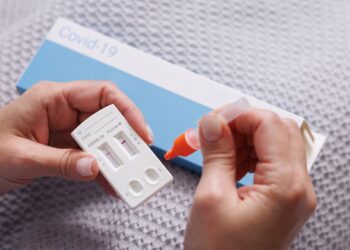More than 70 kidney transplants were performed every day in the United States last year. Rachel Watson wanted to be one of the donors, but was told she didn’t qualify — at first.
Watson, a 27-year-old digital marketer living in Warrenville, had been moved by a news story about a local politician in need of a kidney. In 2022, she reached out to a Chicagoland hospital about donating one of her kidneys to a stranger. During a phone screening, Watson was told that she weighed too much to be considered as a donor.
In January, Watson tried again at Loyola University Medical Center in Maywood. She passed an initial donor screening, but her BMI was still too high.
That’s when she learned about Project Donor, which helps interested kidney and liver donor candidates who are turned away because of their weight or smoking history.
Project Donor, a program run out of the University of Chicago’s Center for RISC, which develops creative solutions for social problems, estimates that 90% of individuals interested in kidney donation don’t make it through the process. The goal is to bring that number down by reaching potential donors who miss donation BMI cutoffs by five to 30 pounds, or because they actively smoke cigarettes, according to University of Chicago professor Steve Levitt, who founded Project Donor and authored the book “Freakonomics.”
Most donation centers require donors to have a BMI lower than 35. They also must not have smoked for at least 90 days before surgery. More permanent factors such as diabetes, cancer, high blood pressure or serious mental health conditions also make potential donors ineligible.
“The system isn’t set up to help them solve those problems,” Levitt said. “We were amazed that there was nobody there trying to take these heroes, these people who are giving up their kidneys for somebody else.
About 90% of Project Donor’s patients are working on weight loss, with…
Read the full article here







